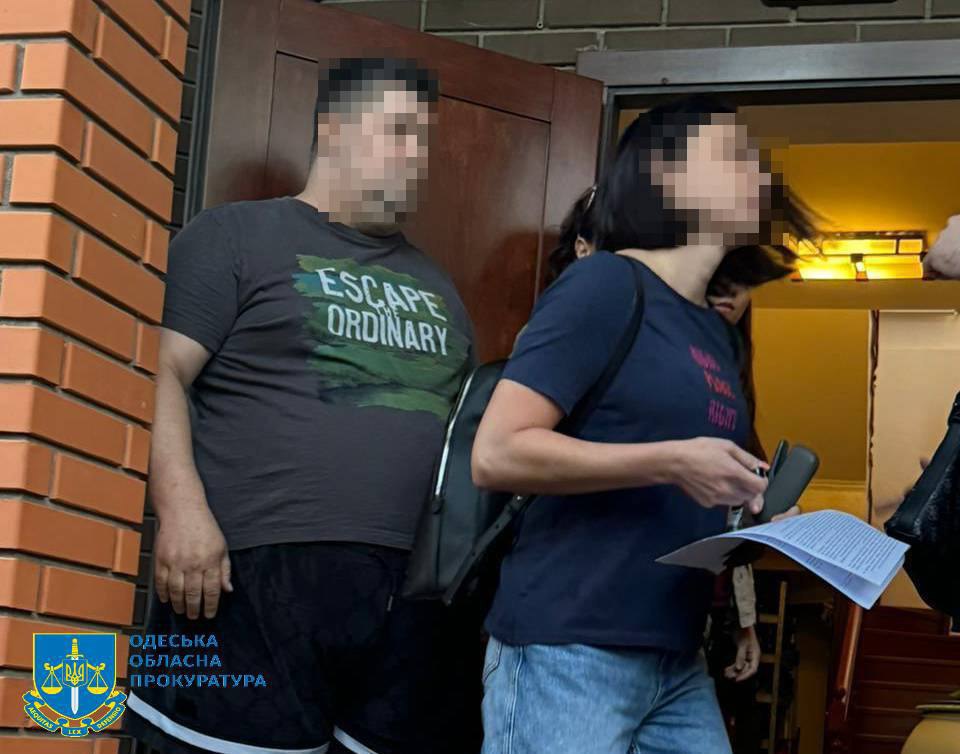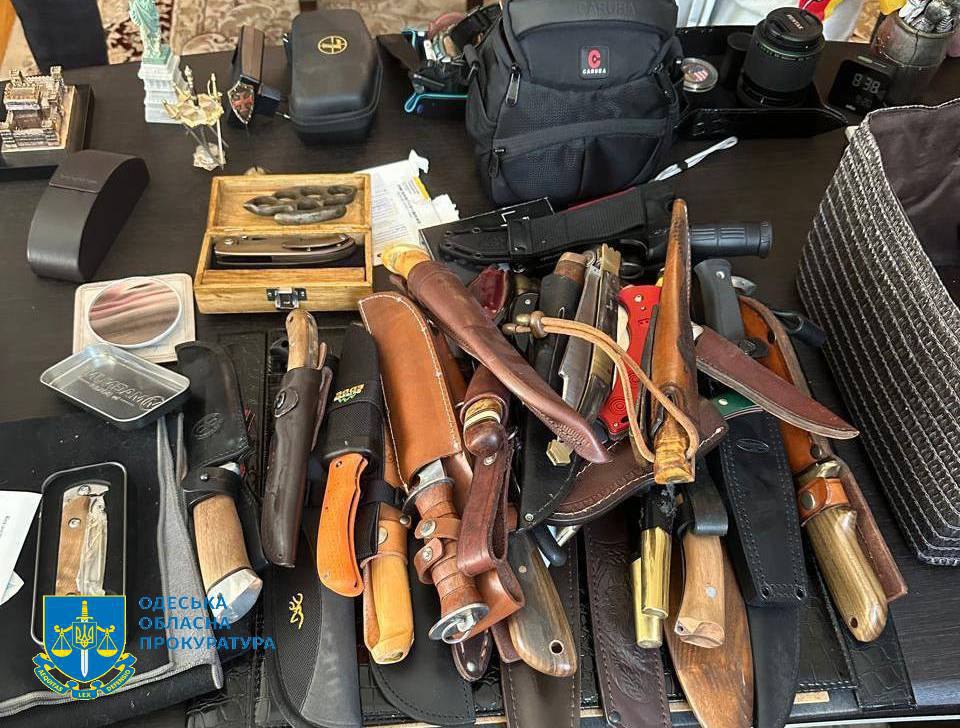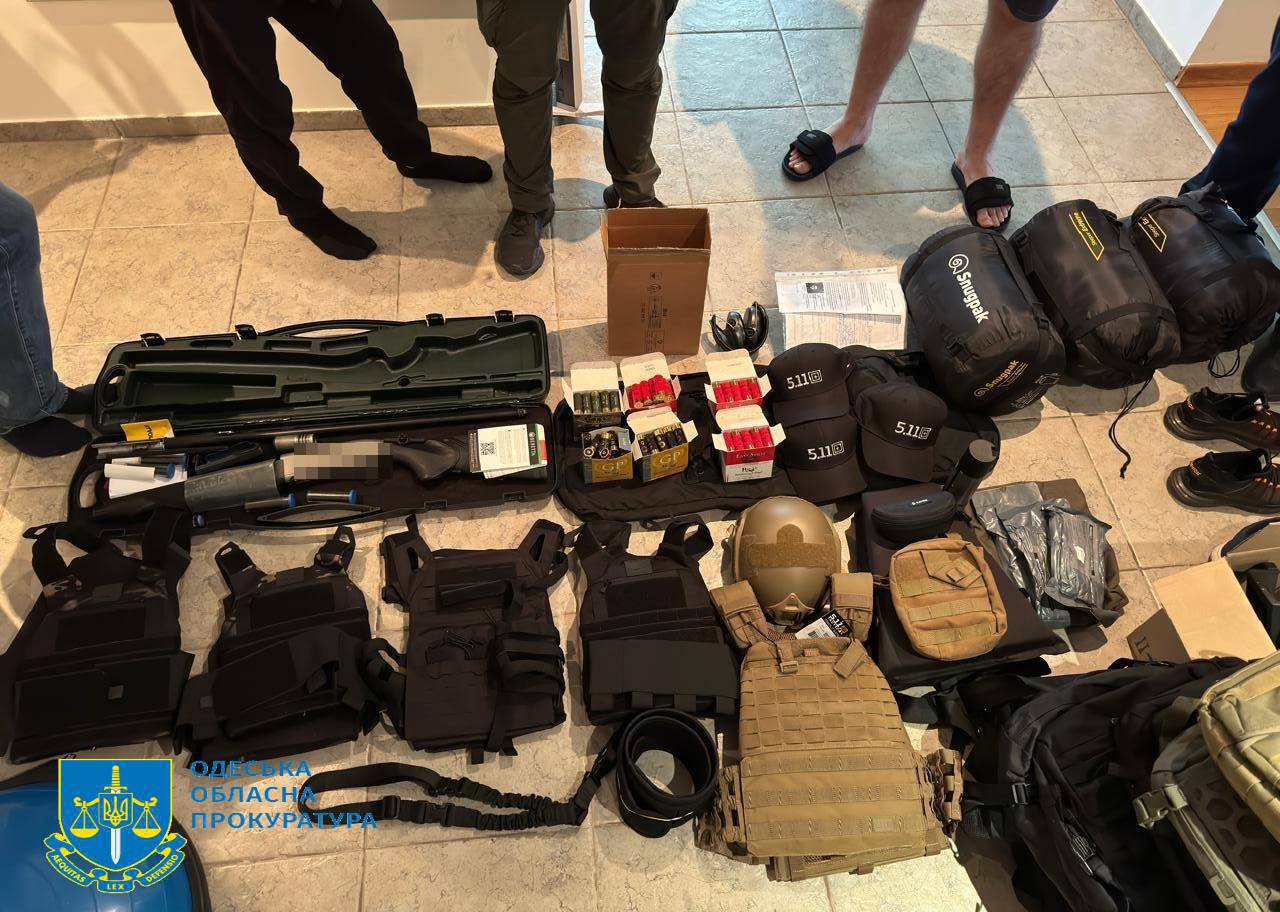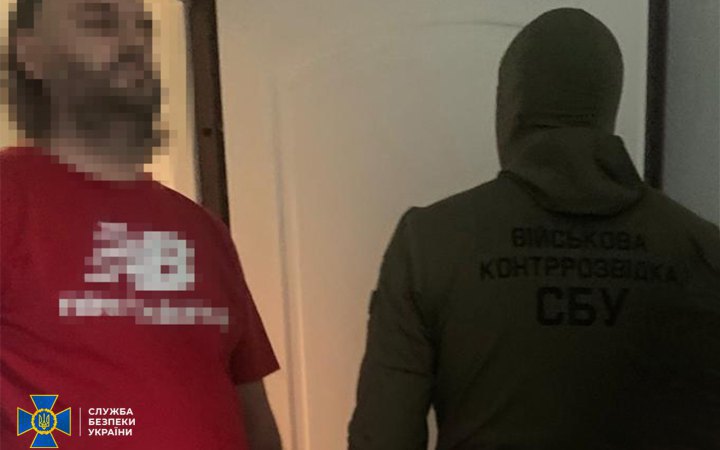Law enforcement officers exposed and neutralised a Russian military intelligence task force that was preparing a power grab in Odesa. As a result of a special operation in the regional centre, the head of the Russian cell and his right hand were detained.
This was reported by the Odesa Regional Prosecutor's Office and the SBU.
The suspects, under the guise of NGOs and commercial enterprises, created a paramilitary formation, the Operational and Combat Unit, whose goal was to assist Russia in the occupation of Odesa and the Region.
The unit was headed by a local lawyer, a 49-year-old ‘scientist’, a native of the Autonomous Republic of Crimea, who moved to Odesa after the seizure of the peninsula, where he gathered a circle of followers who were completely loyal to him personally and ready to unconditionally follow his orders and instructions. He chose a like-minded friend as his co-leader.
On the instructions of the Russian secret service, at the beginning of the full-scale Russian invasion, the attackers were preparing to seize government buildings in Odesa Region. In addition to storming administrative buildings, the defendants were supposed to attack the Defence Forces from the rear if Russians approached the port city.

However, after the failures of the Russian military at the front, this task force was put on standby and activated only in the summer of 2024, when it received secret missions.
For the public, hostile NGOs dealt with issues of military history, ecology and jurisprudence, but in reality they created underground groups: snipers, intelligence, communications, operational support and one of the main ones - an assault group.
In the selection of potential candidates, the defendants preferred citizens with special skills, combat experience or narrowly specialised specialists. In the event of the seizure of Odesa, the group members were promised "positions" in the local occupation administration of the Russian Federation.


The offenders recruited over two dozen people to the Russian cell, who were subordinate to their leader according to the principles of military hierarchy. Currently, all of them are under investigation, and comprehensive measures are being taken to bring them to justice for crimes against Ukraine.
The SBU thwarted the Russia's intentions by documenting subversive activities and neutralising the group immediately after it was "activated" by the Russians.
During the searches, the SBU seized more than 70 firearms, including those with the Russian Federation logo, bulletproof vests, helmets, ballistic goggles and other tactical equipment, as well as instructions for subversive activities.
Based on the evidence collected, SBU investigators served the detainees a notice of suspicion under the following articles of the Criminal Code of Ukraine:
- p. 2 Art. 28, Part 1 Art. 109 (actions aimed at the violent change or overthrow of the constitutional order or the seizure of state power committed by a group of persons by prior conspiracy);
- p. 1, 3, Art. 260 (creation of paramilitary or armed groups not provided for by law).
The detainees are in custody. They face up to 10 years in prison with confiscation of property. Investigative actions to identify all members of the 'organisation' are ongoing.
In June, a court banned eight of Medvedchuk's ‘public organisations’ that were preparing a coup d'état in Kyiv in 2022.








